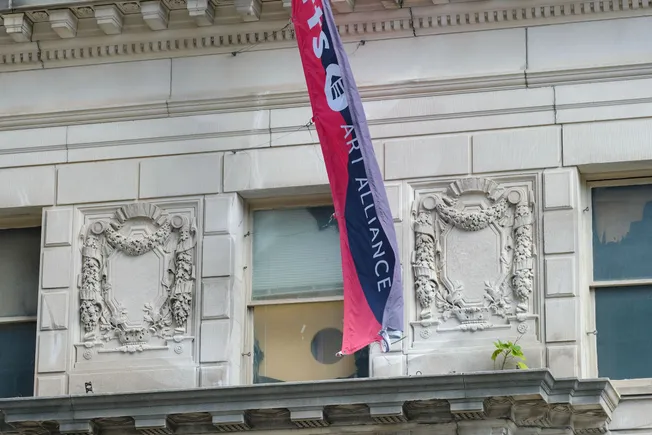Streetoncamara/iStock/Getty Images Plus
Last month, the University of Minnesota’s Center for Holocaust and Genocide Studies announced the hiring of Raz Segal, a well-regarded Israeli American scholar, as its new director. But because Segal had labeled Israel’s actions in Gaza as genocide, the local Jewish Community Relations Council (JCRC) spearheaded a flood of email complaints to the university’s president. The president revoked the offer. In a recent interview, Segal argued that this reversal is not only a violation of academic freedom but may also be an instance of discrimination. As he put it, “I am targeted because of my identity as a Jew who refuses the narrowing down of Jewish identity to Zionism and to support of Israel, whatever it does.”
Segal’s argument may seem odd at first given that Minnesota’s president followed the wishes of a leading Jewish group. Upon reflection however, Segal alerts us to an insidious form of antisemitism whereby, at the behest of establishment Jewish actors, university leaders marginalize and sometimes sanction Jewish dissenters for being the “wrong” kind of Jews.
This form of antisemitism stems from the disparate treatment universities accord to mainstream Jewish actors, such as Hillel International, the JCRC and the Anti-Defamation League, and to Jewish dissenters. In response to accusations that the post–Oct. 7 campus protests are rife with antisemitism, university leaders have regularly consulted with establishment groups, all Israel partisans, to help them determine when speakers, events, rallies or student groups, especially Students for Justice in Palestine, should be condemned or sanctioned. In stark contrast, universities have ignored the pleas of dissenting Jewish students and faculty to address their very different Jewish-informed perspectives on the protests, Israel-Palestine and the American Jewish experience.
Furthermore, establishment Jewish actors are often the instigators of attacks. One common campaign, seen in the Segal case, is to exclude critical faculty, including Jewish faculty, from high-profile Jewish-related academic positions. Several years ago, the lead donor to the University of Washington’s Israel studies program withdrew her funding after the program’s chair, Liora Halperin, refused a demand to not make statements “derogatory of Israel.” At Harvard University, prominent Jewish establishment voices tried to block the appointment of Derek Penslar as co-chair of the antisemitism task force, while at University of California, Irvine, Israel partisans sent mass-produced emails objecting to the hiring of two Jewish studies faculty. For each case, the objectors did not challenge the scholar’s academic credentials but their critical views of Israel.
Another common practice is personal attacks on dissenting Jewish faculty. At San Diego State University, I have been the leading target. My participation in a teach-in on Israel and Gaza prompted a social media campaign labeling the event a “hate fest.” A San Diego institute for funding visiting Israeli scholars disseminated a video in which its visiting scholar described me and a co-panelist as “Jews that hate Israel and practically also hate Jews.” The institute also sent an email blast last fall applauding its scholars for countering the “hate and biased education being taught by too many faculty.”
For dissenting students, the marginalization begins at Hillel, the center for campus Jewish life. It devotes much of its staff and activities to advocacy for Israel and prohibits hosting or partnering with groups or individuals that oppose Zionism, apply a “double standard” to Israel or support boycott, divestment or sanctions. Accordingly, anti-Zionists and other students troubled by Israel’s direction are typically unwelcome. Since Oct. 7, Israel advocacy groups on campus have disparaged Jewish protesters as “self-hating” and “tokenized” Jews.
Far from being a neutral arbiter, university administrators have piled on the abuse. Some, like the University of Minnesota president, execute the demands of establishment Jewish actors. At Columbia University and the University of California, San Diego, administrators found procedural pretexts to shut down Jewish Voice for Peace chapters, while other campuses canceled screenings of Israelism, a documentary on young American Jewish dissenters.
More pervasive is the erasure of dissenting Jews. When offering support and input to the campus Jewish community, officials rarely contact dissenters. A UC San Diego JVP member informed me that UCSD “never reached out to us or acknowledged our existence. They tend to just paint all Jewish people as believing the same thing.” At SDSU, I am one of two remaining dissenters on its task force on antisemitism. Two other members with critical perspectives chose to resign as the task force became more belligerent following Oct. 7. Alarmed by this growing intolerance, I sent multiple emails to the president and her task force representative that documented instances where other task force members maligned pro-Palestinian demonstrators, including one instance in which a fellow member suggested I and other Jewish protesters were giving legitimacy to an “Islamist axis” who ultimately aim at “destroying all Jews everywhere.” I asked for a meeting to follow up on my concerns. Notwithstanding my two decades at SDSU and having multiple scholarly publications on Israel and Zionism, including a 2023 book published with Temple University Press entitled Jewish Self-Determination Beyond Zionism, my emails went unanswered.
By pandering to influential Jewish groups and donors, university leaders are not being pro-Jewish. They are, perhaps unwittingly, flattening a dynamic and heterogeneous Jewish community into a monolithic Israel-partisan bloc and giving fuel to the antisemitic trope that all Jews stand with Israel’s actions. Contrary to the slanderous comments of Israel partisans, Jewish Americans who seek a just coexistence in Israel-Palestine free of Jewish supremacy and denounce Israel’s arguably genocidal assault on Gaza and U.S. complicity are not Hamas apologists or “self-haters.” Rather, we follow a venerable religious and secular Jewish tradition of standing with the oppressed and holding Jews to the highest ethical standards. Shamefully, too many administrators treat us as “fringe” Jews whose views do not matter.
Crucially, the selective antisemitism of university officials harms not just dissenting Jews but everyone striving for a rich university community that offers a badly needed alternative to the increasingly ugly and reflexive discourse in mainstream politics. The gravest harm is to free expression and academic freedom. Only by denying the Jewish credentials of faculty and student dissenters can administrators launder their new crackdowns as combating antisemitism. Ominously, universities are carving new procedural and substantive restrictions that will not stop at Palestine-Israel issues.
Equally at risk are the goals of inclusion and diversity. Administrators’ approach to the Jewish community reflects an impoverished, elitist vision of diversity, equity and inclusion in general. In catering to the elite, universities favor a form of DEI that heavily privileges the dominant actors in each community. This form of DEI neuters critical voices and sanitizes the experiences of all communities.
Only by standing up to the universities’ perverse good Jew–versus–bad Jew approach can all of us, Jewish and non-Jewish, reverse the creeping deterioration of the university and restore it as a place for vibrant discussion and debate.




















Discussion about this post